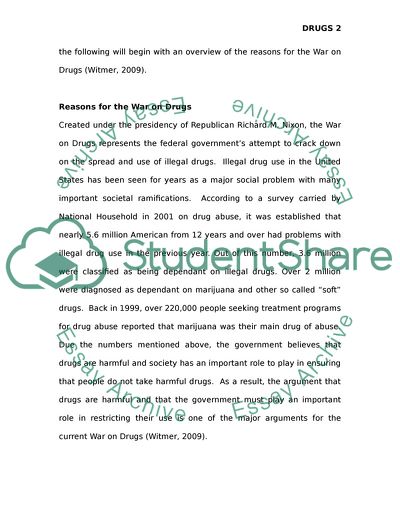Cite this document
(Whether to End the War on Drugs Term Paper Example | Topics and Well Written Essays - 2111 words, n.d.)
Whether to End the War on Drugs Term Paper Example | Topics and Well Written Essays - 2111 words. Retrieved from https://studentshare.org/social-science/1731293-your-opinion-of-the-war-against-drugs-illegal-drags
Whether to End the War on Drugs Term Paper Example | Topics and Well Written Essays - 2111 words. Retrieved from https://studentshare.org/social-science/1731293-your-opinion-of-the-war-against-drugs-illegal-drags
(Whether to End the War on Drugs Term Paper Example | Topics and Well Written Essays - 2111 Words)
Whether to End the War on Drugs Term Paper Example | Topics and Well Written Essays - 2111 Words. https://studentshare.org/social-science/1731293-your-opinion-of-the-war-against-drugs-illegal-drags.
Whether to End the War on Drugs Term Paper Example | Topics and Well Written Essays - 2111 Words. https://studentshare.org/social-science/1731293-your-opinion-of-the-war-against-drugs-illegal-drags.
“Whether to End the War on Drugs Term Paper Example | Topics and Well Written Essays - 2111 Words”, n.d. https://studentshare.org/social-science/1731293-your-opinion-of-the-war-against-drugs-illegal-drags.


